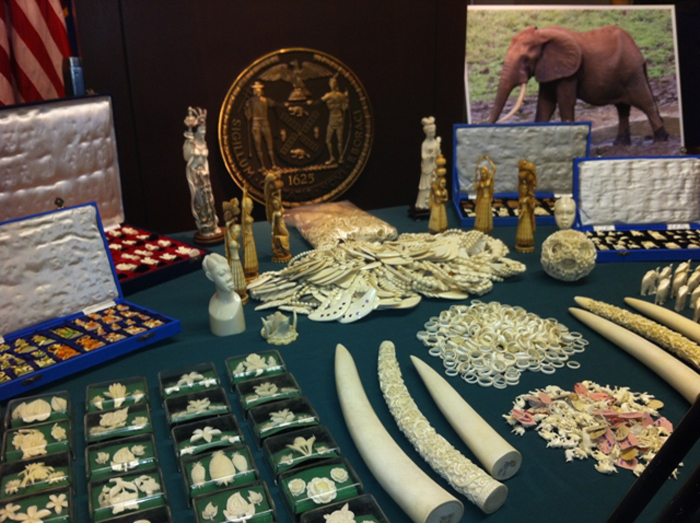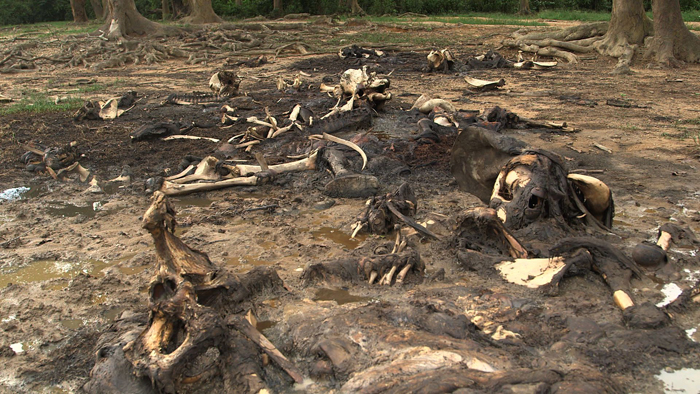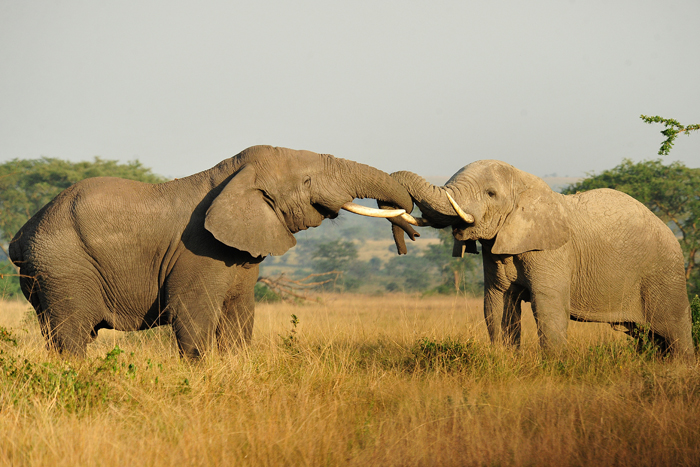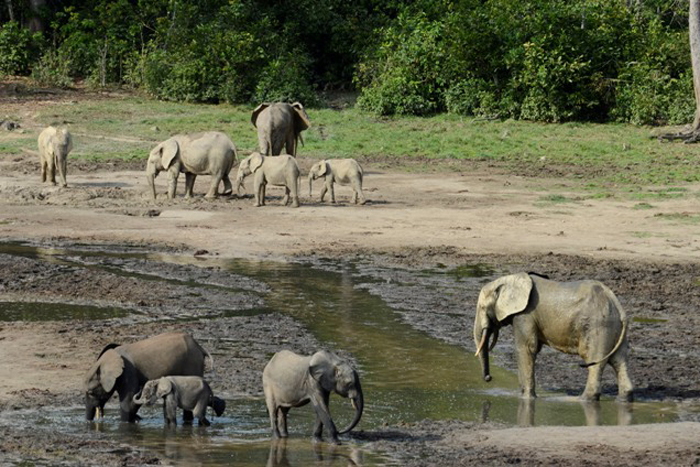
New York's Power to Fight Illegal Ivory (Op-Ed)

Get the world’s most fascinating discoveries delivered straight to your inbox.
You are now subscribed
Your newsletter sign-up was successful
Want to add more newsletters?

Delivered Daily
Daily Newsletter
Sign up for the latest discoveries, groundbreaking research and fascinating breakthroughs that impact you and the wider world direct to your inbox.

Once a week
Life's Little Mysteries
Feed your curiosity with an exclusive mystery every week, solved with science and delivered direct to your inbox before it's seen anywhere else.

Once a week
How It Works
Sign up to our free science & technology newsletter for your weekly fix of fascinating articles, quick quizzes, amazing images, and more

Delivered daily
Space.com Newsletter
Breaking space news, the latest updates on rocket launches, skywatching events and more!

Once a month
Watch This Space
Sign up to our monthly entertainment newsletter to keep up with all our coverage of the latest sci-fi and space movies, tv shows, games and books.

Once a week
Night Sky This Week
Discover this week's must-see night sky events, moon phases, and stunning astrophotos. Sign up for our skywatching newsletter and explore the universe with us!
Join the club
Get full access to premium articles, exclusive features and a growing list of member rewards.
John Calvelli is executive vice president of the Wildlife Conservation Society (WCS) and director of the society's 96 Elephants campaign. WCS manages the Bronx Zoo, the New York Aquarium and other sites, in addition to its conservation work. Calvelli contributed this article to Live Science's Expert Voices: Op-Ed & Insights.
The exact origin of the nickname "The Empire State" is unclear to historians. Most agree that it dates back to the early 19th century, due to the vast wealth and resources of the state, or perhaps because of the Erie Canal's role in opening up the West for economic expansion into the continent. Regardless of the origin, the moniker stuck, and it illustrates the grandeur — and influence — of the city and state of New York.
As a New Yorker, I take great pride in this role — and realize that we have an incredible responsibility to use this influence wisely. As we celebrate World Elephant Day (Aug. 12), the Empire State is poised to help shape the future of one of Earth's most magnificent but endangered species: African elephants. As Gov. Andrew Cuomo signed the new law today, New York, currently the largest ivory market in the United States, banned commercial sales and purchases of ivory and rhino horn.
The United States is the world's second-largest market for ivory, behind China, and much of it flows through New York. The new laws will assist federal efforts to shut down the ivory and rhino-horn trades, and with recently passed legislation in New Jersey, help close one of the nation's largest ports to this illegal wildlife trade.
The situation surrounding the illegal killing of elephants and ivory trafficking is dire. An estimated 35,000 elephants were poached in Africa in 2012, and probably more last year — that's 96 elephants killed every day — for their ivory tusks, which are in high demand in Asia and beyond. Research by WCS and multiple partners found a staggering 65-percent decline in the population of African forest elephants between 2002 and 2013.
In a bipartisan acknowledgement of the urgent need to stop this decline, state leaders from both sides of the political aisle — including New York State Sens. Jeff Klein, Andrew Lanza and Dean Skelos; Assembly Speaker Sheldon Silver; and Assembly Member Robert Sweeney — pushed the ivory ban rapidly through the state legislature.
In signing the legislation, Cuomo recalled the state's leadership role. "I am proud that New York is taking this stand," he said, "and I urge government and community leaders across the globe to do the same."
Get the world’s most fascinating discoveries delivered straight to your inbox.
At WCS, that is our hope too. The federal government is moving toward a ban on ivory sales, but obstacles remain including opposing legislation meant to create loopholes and de-fund enforcement of any ban, and there is more work to be done. In the meantime, we are urging other states and nations around the world to follow New York's lead. [Taking a Page from Eliot Ness to Fight Wildlife Trafficking (Op-Ed)]
The New Jersey Senate and Assembly have already passed a similar ban — in nearly unanimous votes — that has been signed into law by Gov. Chris Christie. The momentum is clearly building for this commonsense strategy in the fight against illegal trafficking and elephant poaching.
Members of 96 Elephants, a coalition of 160 groups committed to saving elephants, are now working on similar efforts in California, Illinois, Vermont, Florida and Hawaii. Today, on World Elephant Day, 96 Elephants members delivered more than 96,000 letters to their governors, asking them to support an ivory ban in their state.
By banning ivory sales and purchases, New York sent a message that the long-term survival of elephants is more important than ivory statues or trinkets, and that it is not afraid to lead the charge against trafficking in the United States. We hope the Empire State can lead the rest of the nation once again.
Follow all of the Expert Voices issues and debates — and become part of the discussion — on Facebook, Twitter and Google +. The views expressed are those of the author and do not necessarily reflect the views of the publisher. This version of the article was originally published on Live Science.
 Live Science Plus
Live Science Plus














